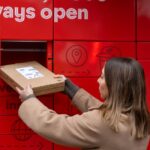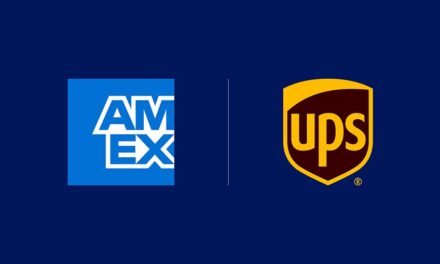
UPS trying to win USPS parcel traffic
UPS is trying to win parcel traffic away from the U.S. Postal Service and then give it right back.
The company is testing a new service called UPS Basic that will use the USPS's own delivery network for the last leg of delivery in parts of United States, offering cost savings over regular postal and UPS Ground service in a bid to capture business from the USPS and consolidators.
The service marks a new step in the growing competition for ground delivery in the U.S. parcel market and FedEx says it is already talking with the Postal Service about a program of its own.
Airborne Express started the trend of offering a cheaper version of ground delivery through the Postal Service with its Airborne@home service a couple of years ago and DHL bought Airborne partly because of the company's growing ground presence.
UPS is targeting price-conscious shippers such as catalog retailers who will trade delivery speed for lower rates. Those are precisely the shippers most likely to use the Postal Service, and such companies are some of the Postal Service's biggest customers. UPS Basic's stripped-down service does not offer a time-definite delivery guarantee or multiple delivery attempts.
But UPS is betting that enough shippers will be willing to give up some of UPS's usual amenities to make the gambit worth it.
"We're going to cut back on some of the things that everybody expects from UPS," UPS spokesman Norman Black said.
UPS and FedEx plan to exploit a provision in Postal Service operations that gives consolidators that deliver presorted parcels to postal facilities far cheaper rates than regular parcel shippers.
"This is a program that's open to everyone," Postal Service spokesman Gerry McKiernan said. "And UPS has decided to take advantage of it. I don't have an opinion. It's neutral. It doesn't matter. We're delighted to have customers."
UPS also seeks to downplay the importance of UPS Basic, which is in the test phase. "It's a new initiative trying to see how we can attract business we don't have today," Black said.
But not everyone expects the relationship to rosy. The Postal Service and UPS are longtime fierce competitors, and both are working hard to hang on to market share on the ground. By dumping what could amount to thousands of packages per day into the Postal Service's network through its Parcel Select program, UPS and FedEx are casting off low-margin business for price-conscious shippers.
"It could become political because the Post Office loses money," UBS Airfreight Analyst Rick Paterson said. "And here you have a large corporation exploiting the loophole to make it lose more money. That could be an issue down the road in terms of the political sentiment."
Paterson also warned that UPS risks "cannibalizing" its own parcel business.
"I think that the risk for UPS is that you have the Post Office delivering UPS packages," he said. "They're delivering their brand to some degree to the hands of the Postal Service."
The highly successful Parcel Select program began in the late 1990s as a spin-off to the Postal Service's long-standing Parcel Post product. It is intended to save consolidators money and save the Postal Service work.
"Parcel Select is intended to accommodate this growing expanding notion, which I think you find in a lot of industries, of work sharing," McKiernan said.
He said Postal Service officials can't lose sleep over UPS and FedEx using its network because the USPS mandate does not allow it to turn away customers.
"We don't discriminate as to who we deliver mail for," McKiernan said. "We can be thrilled that you're a customer of ours. Or we can be upset that you're a customer of ours."
When the Postal Service began the Parcel Select program, it worked for only a couple of consolidators, McKiernan said. Today, there are more than 20.
"You've got to assume these new companies took business away from UPS," McKiernan said. "And maybe UPS is trying to get it back. This is what happens in this business."
Consolidators show annual revenue in the millions, much smaller than UPS, which reported $30 billion in revenue last year.
"At least it's been my experience, the consolidator business and the customers who use Parcel Select are a creative bunch of people in a very volatile market," McKiernan said.
Not all UPS Basic shipments will end up in Postal Service delivery vehicles. UPS plans to deliver packages on more profitable routes while handing off deliveries to remote and hard-to-reach destinations. Airborne is a longstanding user of the Postal Service for consumer deliveries.
Analysts assume UPS and FedEx have been looking for a while at the service as a means of accessing Postal Service last-mile delivery. Both companies are starting small. UPS has two customers signed up and is negotiating with more, while FedEx is still in the planning stages.
The Wall Street Journal reported that the two customers are Altria Group's Gevalia Kaffe and Pinault-Printemps-Redoute SA units Chadwick's of Boston and Brylane LP. UPS's Black declined to comment on the customers. "We are not discussing customers or confirming who they are," he said. "We're never going to talk about who the customers are."
FedEx spokeswoman Shirlee Clark would not provide details about Memphis-based FedEx's still unnamed program. But she said FedEx, which has a $7 billion contract with the Postal Service that is funneling huge volumes of mail to FedEx aircraft, is working with the Postal Service as it designs its new product.
"This would be coordinated very well with them," Clark said. "We do have a good relationship. We've established some good lines of communication there. This would be a service that would be designed to meet our customers' needs."












